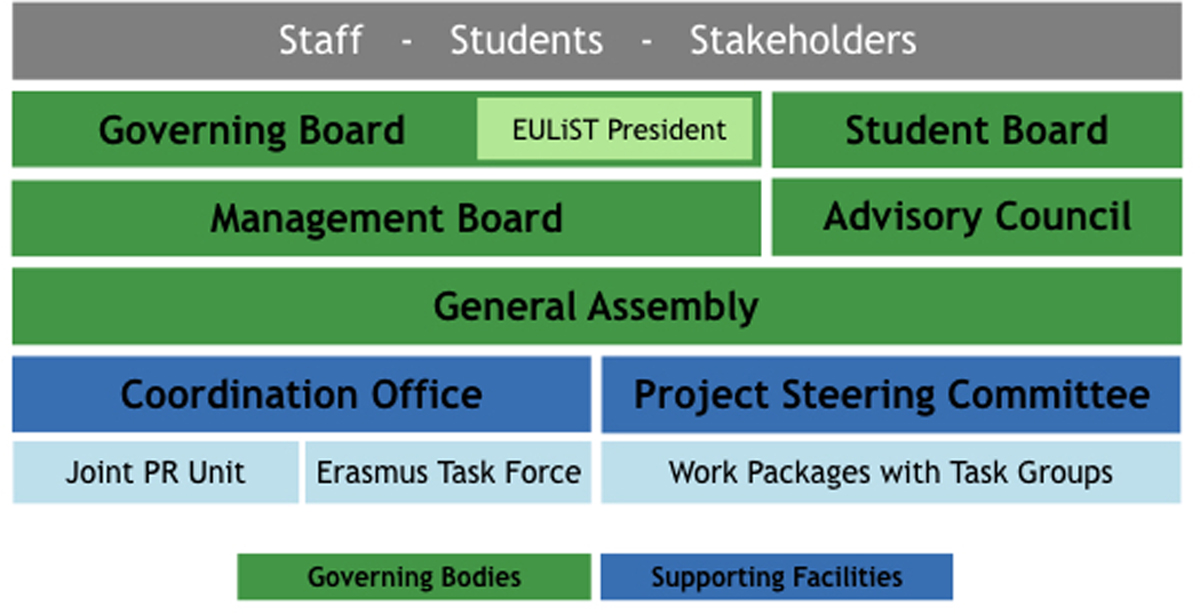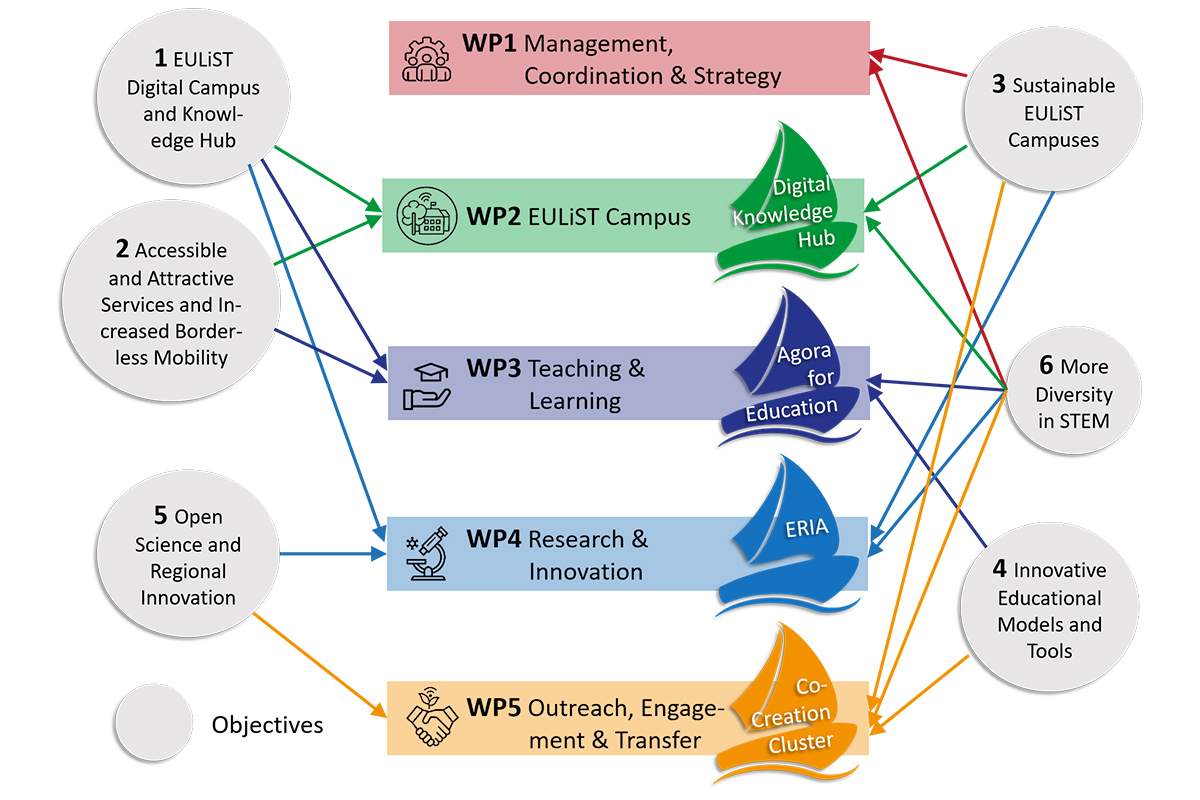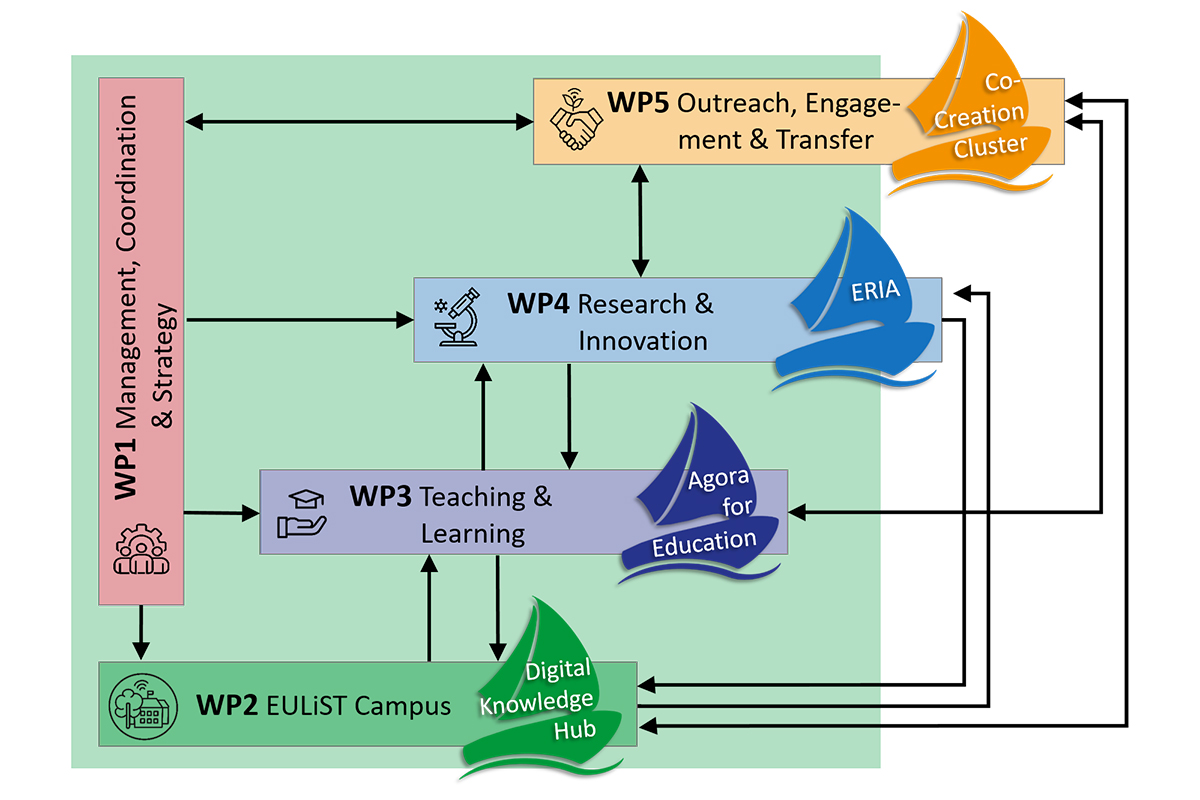Connecting academia and society through dialogue – Leibniz University Hannover has taken up this challenge in cooperation with nine partner universities in Europe. The EULiST – European Universities Linking Society and Technology alliance aims to bring the European experience to life for all students and university members. Together with our EULiST partners, we intend to make our vision of a European university a reality – through cooperation in the context of studies, research and administration. Strong partners and close networks ensure our future competitiveness in the international realm.
Background information
Objectives
The EULiST objectives are as inspiring and they are diverse:
- We want to educate a generation of European citizens who are multilingual, socially responsible and able to build bridges between academia and society.
- Our vision is to create a physical and virtual European EULiST campus characterised by diversity, inclusion and sustainability.
- We aim to develop innovative, flexible and interactive teaching formats and curricula that sustainably integrate cutting-edge research.
- We want to bring together international teams made up of students, researchers and regional actors to develop sustainable solutions to societal challenges.
- We would like to build a cooperative knowledge and transfer network that supports results-oriented research, innovation and evidence-based policy development.
We have already identified thematic synergies and focal areas that focus on the following five Sustainable Development Goals of the United Nations:
- SDG 4 - High-quality education
- SDG 6 - Clean water and sanitation
- SDG 7 - Affordable and clean energy
- SDG 9 - Industry, innovation and infrastructure
- SDG 11 - Sustainable cities and communities
- SDG 13 - Climate action
But this is just the beginning! We are open to cooperation and joint activities in other interesting thematic areas. In keeping with Leibniz University Hannover’s motto – “The spirit of Leibniz!” – let’s shape the future together!















































![[Translate to English:] [Translate to English:]](/fileadmin/_processed_/e/f/csm_2025_AktuelleMeldung_EULiST_WP3-Workshop_Wien_1eee92d0a0.jpg)








